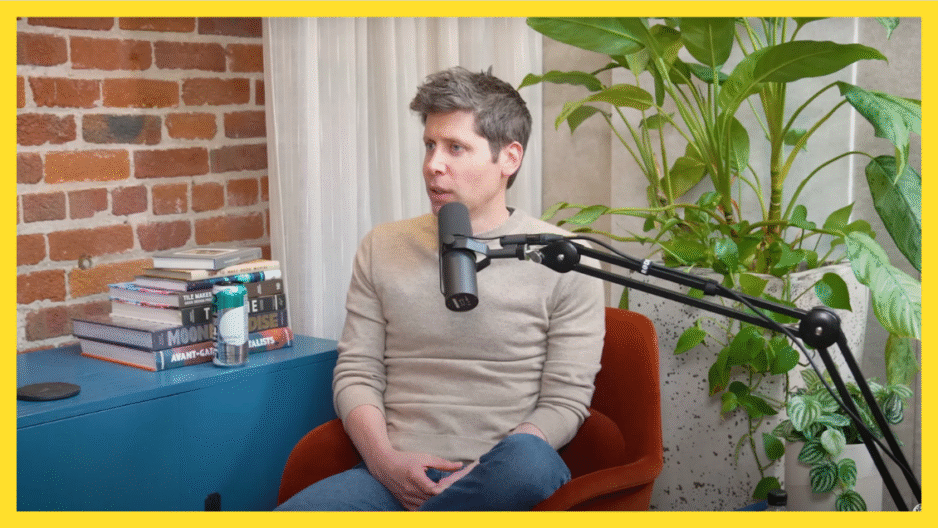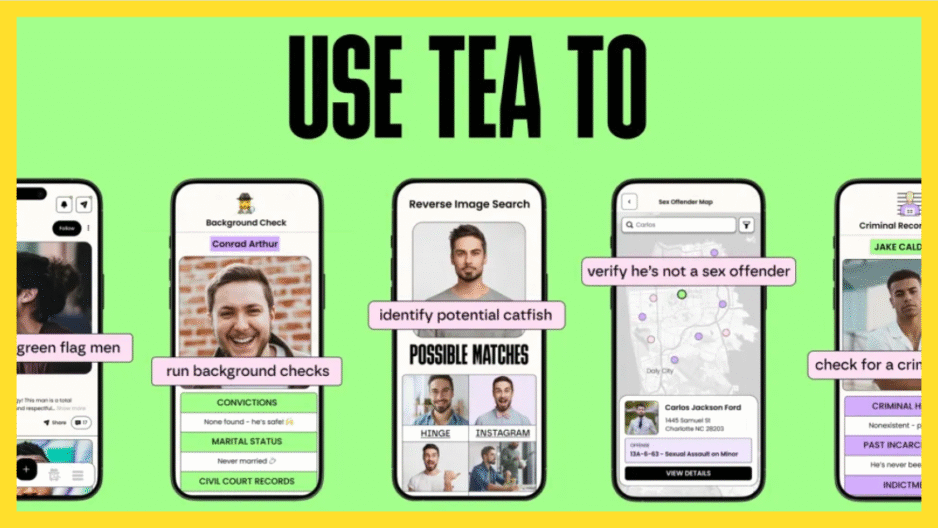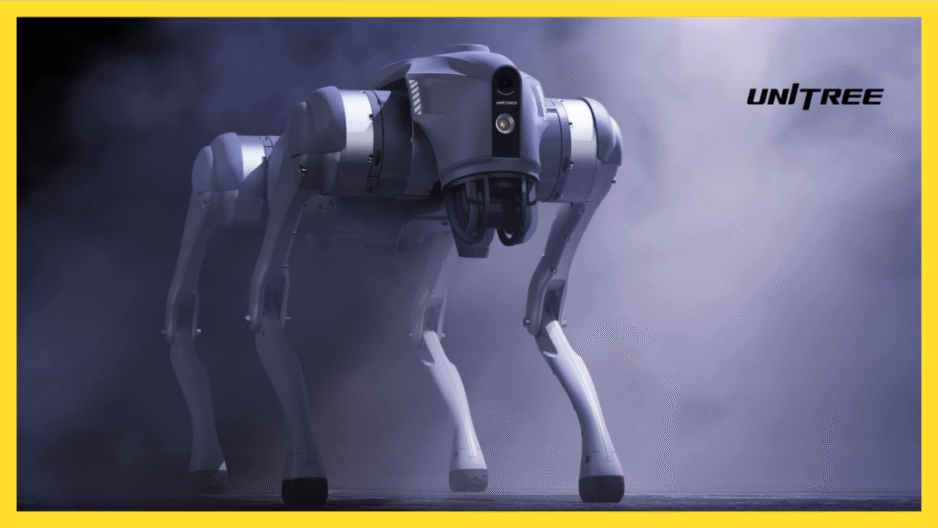Thinking of venting to ChatGPT like it’s your therapist? Maybe hold up. OpenAI CEO Sam Altman just admitted there’s zero doctor-patient confidentiality with AI right now. On a podcast, he said users — especially young people — often share deep emotional stuff with ChatGPT, but unlike real therapists or doctors, AI chats aren’t legally protected. That means your convo could be used in court if needed. Altman called it “screwed up” and says AI laws badly need to catch up. Until then, maybe don’t spill your heart out to a bot.
Tag: 2025 Tech Trends
Viral Dating App ‘Tea’ Hacked, 72,000 User Photos Leaked
The viral dating safety app Tea just faced a serious privacy nightmare—hackers breached its system and leaked over 72,000 user images. That includes 13,000 verification selfies and photo IDs, plus 59,000 pics from posts, DMs, and comments. While the company says that emails and phone numbers weren’t exposed, users who signed up before Feb 2024 are affected. Making it worse? 4chan users reportedly shared some of the leaked content. Ironically, this all happened right after Tea topped the App Store charts. The company says it’s working with cybersecurity experts and has already fixed the issue—but the trust damage is done.
Credit: teaforwomen
New AI Chips Promise Less Energy, More Power
AI’s hunger for energy is getting wild, and tech leaders are finally panicking. Cloudflare’s hardware boss Andrew Wee says the energy demand for AI is flat-out unsustainable. That’s where startups like Positron and Groq come in—trying to beat Nvidia’s domination with chips built purely for inference (aka responding to prompts). Groq says their chips use 1/3 the power and are way faster. Cloudflare’s already testing Positron’s low-energy chips. Even Amazon’s building its own! Everyone wants to dodge the “Nvidia tax”—their high prices and energy cost. But honestly, beating Nvidia at its own game won’t be easy.
Credit: WSJ
China’s Unitree Launches $5,900 Humanoid Robot to Beat US in Robot Race
While US tech giants are still dreaming up the future of humanoid robots, China’s Unitree Robotics has already dropped a $5,900 robot named R1—and it’s shockingly capable. From doing cartwheels to running downhill, this four-foot robot is no gimmick. It’s lightweight, AI-powered, and even cheaper than many electric scooters. Compared to Tesla’s Optimus, which could cost up to $20,000, the R1 feels like a serious attempt to bring robots into our daily lives. With built-in Wi-Fi 6, voice/image recognition, and a strong spec sheet, Unitree seems determined to make humanoid robots mainstream before anyone else does.
Credit: indianexpress
Kunal Shah’s Simple Secrets to Winning
I recently caught a podcast with Kunal Shah, the guy who started CRED, and wow, he dropped some serious wisdom! He wasn’t just talking business; he was giving us a super clear peek into how things really work. From selling stuff to building an amazing team, he just made so much sense. If you’ve ever wondered about making it big, you’ll want to hear this.
Selling: A Skill Everyone Needs
In his early days, he sold small items like mehndi cones. He learned fast that persuasion—being able to convince people—is key. Seriously, he thinks it’s vital for everything in life. He even mentioned that many of us in India aren’t naturally good at it, maybe because we haven’t often had to persuade others just to get by.
His advice is spot on: Watch people who are great at it. And don’t be scared to ask for help! He said selling isn’t about tricking; it’s about finding a win for everyone involved. I think that’s a pretty smart way to look at it.
Drop the Shame, Grow Faster
Here’s something deep: Kunal said that being afraid to ask for help or even to push your own ideas often comes from feeling insecure or “ashamed.” He figures that people who aren’t afraid to go after what they want, even if it feels a little “shameless,” actually grow way faster. And get this: he also noted that folks who get easily offended might not be honest with themselves, which really stops them from growing.
Building a Killer Team
If you’re in charge, or even just part of a team, Kunal’s advice on company culture is gold. To get everyone comfortable speaking up, he suggests some easy but powerful moves:
- Always let new folks ask questions—their fresh eyes are a gift!
- Treat feedback like a present.
- He even sits down with new hires at CRED early on to hear their thoughts.
- And here’s a big one: Have meetings just for listening to feedback; no arguing allowed. Smart, right?
CRED’s Core Rules
Kunal laid out CRED’s main values, and you can see why they work:
- Earn Trust: Always be someone people can rely on.
- Good Judgment: Make smart calls, even when things are fuzzy. Like launching that big ad campaign during COVID.
- High Agency: Be the person who makes things happen, not just waits around.
- Keep Learning: Always grow and change.
- Find the Truth: Always look for what’s real, no matter who says what.
How CRED Picks Its People
CRED looks for folks who fit their values. They actually like hiring “expounders“—people whose own startups didn’t quite make it. Why? Because these folks often know their weak spots, are open to advice, and are super driven. Kunal stressed that you want people who want to do well, not those who need constant pushing.
Investing: The Real Reason
Finally, Kunal gave a clear take on getting money from investors. He said investor cash just helps you grow faster, but you do give up some ownership. His advice: Only seek funds if your business has a huge market and solves a unique problem. Investors want big wins because, let’s be honest, lots of new businesses don’t make it.
My honest thoughts? This podcast is packed with super clear, no-nonsense advice. Kunal Shah isn’t just for business gurus; his ideas are useful for anyone trying to get ahead and build something cool.
Definitely check out this podcast! If you want to hear it straight from Kunal Shah, I really suggest you give it a listen. You’ll walk away with some great ideas you can use right away.
Why Bill Gates Refuses to Let Go of His $130 Million Xanadu 2.0 Mansion
Bill Gates might be one of the richest people on the planet, but his connection with his massive home near Lake Washington isn’t about luxury. For him, Xanadu 2.0 is something much more personal.
Built over seven years and spread across 66,000 square feet, this high-tech mansion is worth more than $130 million today. But Gates isn’t thinking of selling it or even downsizing. Despite no longer living there with family, he says the house still holds deep emotional value.
In past interviews, Gates shared that the mansion is filled with memories and moments that shaped his life. It’s not just a house, but a symbol of how far he’s come — both as a tech visionary and as a father. The home has seen family milestones, long brainstorming sessions, and the rise of Microsoft.
Even though Gates is now divorced and his kids are grown up, they still visit the estate often. This makes Xanadu 2.0 a continued meeting point for family, something he clearly treasures.
Interestingly, Gates also refuses to renovate or change much inside. For him, the place is perfect the way it is — a blend of old tech innovations, personal memories, and peaceful surroundings.
While he’s known for living simply and giving most of his wealth away, this mansion is one part of his life he’s not willing to let go. And honestly, it makes sense. Some places are just too full of life to ever feel like real estate.
Credit: india.com
TCS Layoffs: What 12,000 Job Cuts Really Say About the Future of IT
Tata Consultancy Services (TCS), the biggest name in Indian IT, is letting go of around 12,000 employees in the coming year. That’s a serious move. And while it’s being described as part of a tech transition, it also shows how much the industry is changing beneath the surface.
TCS is trying to reinvent itself by investing more in AI, automation, and newer work models. But it seems not every role fits into that picture anymore. Especially for those in middle and senior positions, the message is clear—the company is shifting gears, and not everyone will be on that ride.
They’ve also introduced new rules for employees who are between projects. Now, you need to be actively billed for most of the year. If you’re not contributing to a live project within a short time, your future at the company could be uncertain. That’s a big cultural shift from the way IT firms used to function.
What’s also interesting is that some insiders say the exit process is not as smooth as it sounds. While severance packages and benefits are being offered, there are reports of quiet pressure being put on employees to resign instead of waiting for a formal termination.
This isn’t just a TCS story. It reflects what’s happening across the tech space. Skills are evolving fast, and companies want talent that can keep up with that pace. If anything, this move is a reminder that staying relevant is now more important than ever.
Credit to Moneycontrol for the core updates
Who Is Shengjia Zhao? Zuckerberg’s Billion-Dollar AI Gamble Starts With This One Man
In July 2025, Meta Platforms made a bold move by hiring Shengjia Zhao, one of the key minds behind ChatGPT and GPT‑4, as the Chief Scientist of its newly launched Superintelligence Labs. This marks a major step in Meta’s race toward artificial general intelligence (AGI), putting it in direct competition with OpenAI and Google DeepMind.
Who Is Shengjia Zhao?
Zhao did a bachelor’s degree at Tsinghua University and a PhD in computer science at Stanford University.
Shengjia Zhao is a renowned AI researcher best known for his work at OpenAI, where he co-authored the research paper behind ChatGPT. He also contributed significantly to the development of GPT‑4, compact models like GPT-4.1 and o3, and OpenAI’s o1 reasoning model, which sparked the “chain-of-thought” revolution in AI.
One of his most important ideas was a “new scaling method”, used in OpenAI’s o1 model—a system designed to solve complex problems using reasoning, much like a human brain.
What Is Meta Superintelligence Labs?
Launched in June 2025, Meta’s Superintelligence Labs is a new research division dedicated to creating superintelligent AI systems. Unlike Meta’s existing FAIR unit, this lab is entirely focused on Artificial General Intelligence AGI—scaling up models, building novel architectures, and pushing the frontier of AI research.
Meta has invested billions of dollars into this initiative, including infrastructure, AI talent acquisition, and open-source research.
We are excited to announce that @shengjia_zhao will be the Chief Scientist of Meta Superintelligence Labs!
— Alexandr Wang (@alexandr_wang) July 25, 2025
Shengjia is a brilliant scientist who most recently pioneered a new scaling paradigm in his research. He will lead our scientific direction for our team.
Let's go 🚀 pic.twitter.com/D93KQWIvFl
Zhao’s New Chapter at Meta
In mid-2024, Meta took a big leap by launching its Superintelligence Labs, a new unit focused on building advanced AI systems. Right from the start, they brought in Shengjia Zhao as the Chief Scientist. He will now work with Mark Zuckerberg and Alexandr Wang, Meta’s Chief AI Officer. Interestingly, Zuckerberg didn’t just welcome him—he referred to Zhao as a “co-founder” of the lab, showing how central he is to this mission.
Zhao’s main job is to guide the lab’s research, help improve Meta’s Llama AI models, and lead the push toward developing smarter, more human-like AI tools.
Why This Matters
Zhao brings credibility and clarity: With a track record of actual breakthroughs, his presence makes Meta’s AGI mission more credible.
Meta is back in the AGI race: After mixed results with LLaMA 4, Meta is repositioning itself as a serious player.
Talent wars are heating up: By pulling top talent from OpenAI, Google, and Anthropic, Meta is signaling its aggressive intent.
Final Thoughts
With Zhao leading the charge, Meta is not just building another AI lab—it’s crafting a bold new future. His deep research background, combined with Meta’s scale and vision, could unlock the next era of intelligent systems. Whether you’re a developer, entrepreneur, or just an AI enthusiast, this is one story you’ll want to keep an eye on.
Read More: iq.wiki, Mint, TOI, CNBC
Google Joins the “Vibe-Coding” Craze with Opal
Google’s diving into the no-code AI wave with Opal, a new tool that lets anyone build mini web apps just by typing what they want. Now testing in the U.S. via Google Labs, Opal turns your text prompts into working apps and even shows you a visual workflow you can tweak. It’s Google’s answer to tools like Cursor and Canva, aiming to make app-building accessible—even if you don’t code.
Credit: Techcrunch
Tesla’s Budget Car Is Finally Happening… Kind Of
Tesla just confirmed that its long-rumored cheap EV is real—and yes, production actually started in June. But don’t get too excited just yet. Full-scale rollout won’t happen until late 2025. The company’s focusing on pushing out pricier models first, before the $7,500 EV tax credit ends in September. Elon Musk hinted it’s not a totally new car, but a stripped-down Model Y. If true, it could shake up the EV market—assuming it doesn’t eat into Tesla’s own sales. After years of promises, the pressure’s on to finally deliver an affordable Tesla that actually reaches the masses.
Credit: gizmodo










